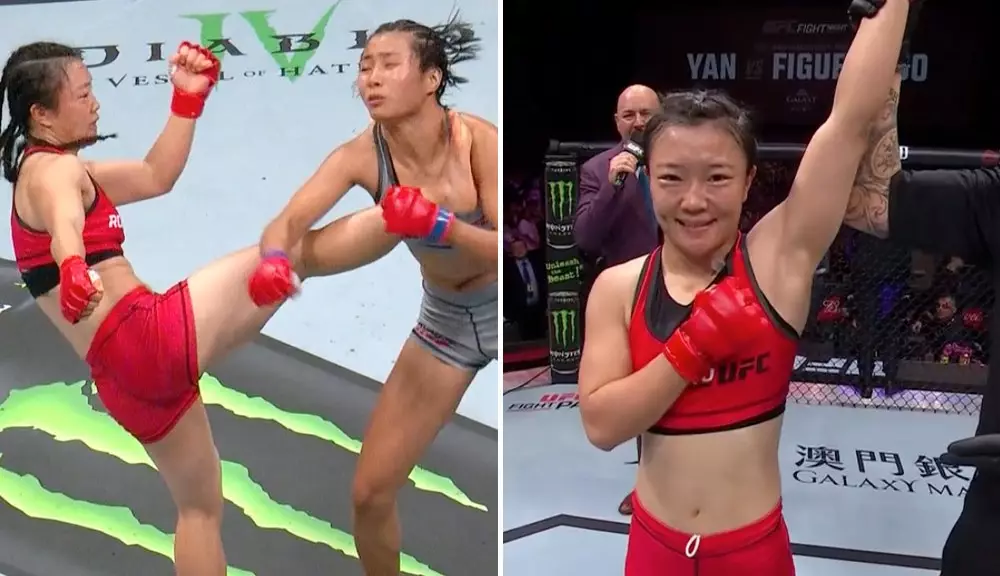Ming Shi has recently emerged in the fight world, making her mark in the UFC under remarkable circumstances. At UFC Fight Night 248, she claimed her spot as a standout competitor by delivering a striking head kick that knocked Xiaocan Feng out in the third round. This victory not only solidified her place as the first winner of the “Road to UFC” strawweight tournament but also brought with it a fierce wave of emotions. While the triumph is typically celebrated, Shi found herself wrestling with feelings of compassion for her opponent, whose health became a grave concern after the brutal knockout. The moment had elements of stark contrast: jubilation for her triumph juxtaposed with worry for Feng’s well-being.
In an industry often characterized by its cutthroat nature, Shi’s sentiments present an interesting paradox. Here is a fighter, succeeding in one of the toughest sports globally yet burdened by an innate compassion that affects her competitiveness. She expressed her struggle candidly: “That’s my biggest weakness, I have too much mercy.” This statement not only reflects Shi’s character but also highlights the psychology that athletes must navigate in high-stress environments. For someone who is also a medical doctor, witnessing another fighter down for an extended period struck a dissonant chord within her. Her emotional response reveals an important facet of being a combat athlete—victory does not come without reservations, especially when it impacts the well-being of others.
As Ming Shi’s career takes flight, she garners accolades that many aspire to achieve, including a UFC contract and a Performance of the Night bonus of $50,000. These feats are symbolic of her hard work and dedication to her craft. However, beneath the surface of her triumph lies a significant detail: her parents remain unaware of her true career path. Shi has cultivated a narrative centered around traditional martial arts competitions to shield them from the often harsh realities of professional fighting. This act speaks volumes about cultural expectations and the weight of familial obligations that many athletes carry. “For my parents, they are traditional Chinese parents and they worry about me,” she stated, providing a glimpse into the balancing act of pursuing one’s passion while trying to appease family dynamics.
Looking Forward
With a mixed bag of emotions surrounding her journey and newfound success, Shi’s future in the UFC seems promising yet complicated. As she navigates her career, her compassion and dedication will undoubtedly continue to shape her approach to the sport. Shi’s ability to blend her dual identities—a fighter and a physician—will play a crucial role in how she manages the intersections of success, personal values, and cultural expectations. As she aims to solidify her place in the UFC, fans and followers alike will keenly watch how she reconciles the thrill of competition with the empathetic side that highlights her humanity. The road ahead is undoubtedly filled with challenges, but Shi’s blend of strength and compassion sets her apart in a world defined by toughness.

